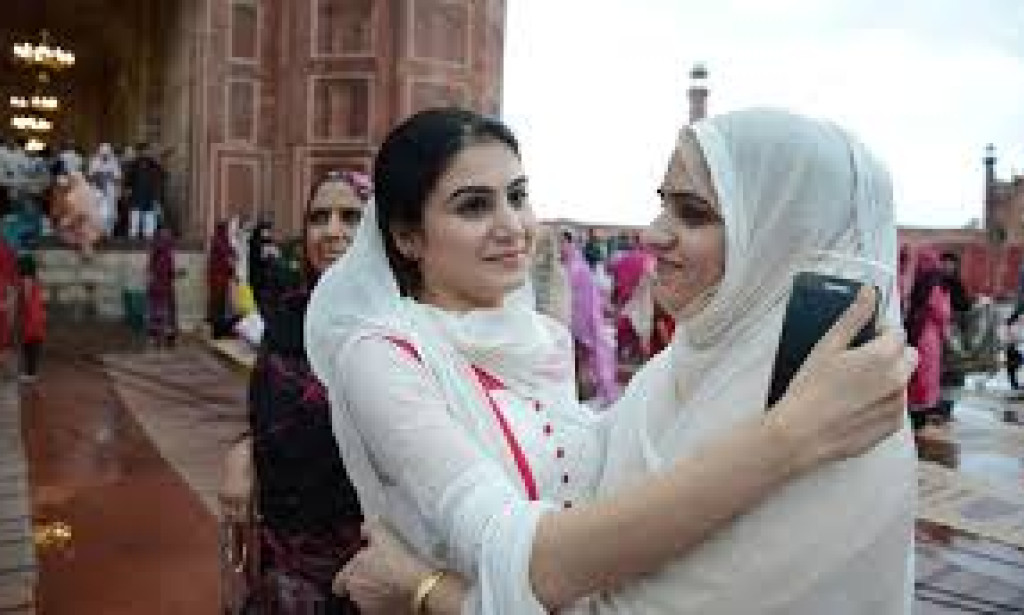Eid-ul-Fitr in Pakistan: A Celebration of Joy and Togetherness
Eid-ul-Fitr is one of the most significant religious festivals celebrated by Muslims in Pakistan and around the world. It marks the end of the holy month of Ramadan, a period of fasting, prayer, and self-reflection. In Pakistan, Eid-ul-Fitr is a time of immense joy, gratitude, and social gatherings. It is celebrated with great enthusiasm, reflecting the country’s deep cultural and religious values.

Preparations for Eid-ul-Fitr
The excitement for Eid begins weeks before the actual day. Markets and shopping malls become crowded as people buy new clothes, shoes, and accessories. Special stalls are set up for henna (mehndi), bangles, and traditional jewelry. Women and young girls especially look forward to decorating their hands with intricate henna designs. Tailors become extremely busy, as people want their Eid outfits to be perfectly stitched.
As Eid approaches, homes are cleaned and decorated. Many families buy new furniture or repaint their houses to welcome guests in a festive atmosphere. Special foods and sweets, including seviyan (sweet vermicelli), sheer khurma, and various types of traditional sweets, are prepared in advance.

The Night Before Eid – Chaand Raat
Chaand Raat (the night of the moon sighting) is an important part of Eid celebrations in Pakistan. On this night, people eagerly wait for the official announcement of the moon sighting, signaling the end of Ramadan. Once the moon is sighted, joyful celebrations begin. Markets remain open late into the night as people rush to complete last-minute shopping. Families visit shopping centers, where the atmosphere is filled with excitement and festivity.

Eid Day Celebrations
On the morning of Eid, the day begins with a special prayer known as the Eid prayer, which is held in mosques, open fields, and Eidgahs (large prayer grounds). People dress in their best clothes, often wearing new traditional attire such as shalwar kameez for men and colorful dresses for women. After the prayer, they greet each other with hugs and the traditional greeting, "Eid Mubarak."
A significant part of Eid-ul-Fitr is Zakat-ul-Fitr, a form of charity that every Muslim must give before the Eid prayer. It ensures that the less fortunate can also celebrate Eid with joy. Many people also distribute food, clothes, and money to the needy.
After prayers, families gather for a grand breakfast, often including sheer khurma, a traditional sweet dish made of milk, vermicelli, and dry fruits. Throughout the day, relatives and friends visit each other, exchanging gifts and sweets. Children receive Eidi, which is money given by elders as a token of love and blessings.
The Spirit of Unity and Joy
Eid-ul-Fitr in Pakistan is not just about celebrations; it is also a time for unity and compassion. People make an effort to mend broken relationships, seek forgiveness, and spread happiness. The festival brings people of all social classes together, as everyone participates in the joyous occasion.
Eid-ul-Fitr in Pakistan is a beautiful blend of religious devotion, cultural traditions, and social bonding. It strengthens relationships, promotes generosity, and brings smiles to countless faces, making it one of the most cherished festivals in the country.





You must be logged in to post a comment.